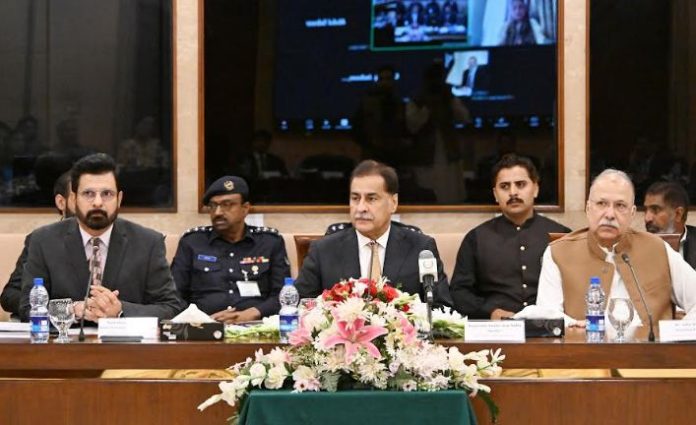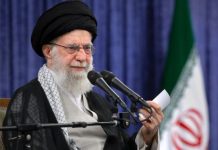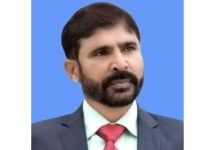
by Muhammad Mohsin Iqbal
In 2003, when I first assumed my responsibilities as a Research Officer in the National Assembly, I quickly realized that the foundation of my work rested upon the Constitution of Pakistan and the Rules of Procedure. Every assignment, every reference, and every note prepared for the proceedings of the House demanded a careful reading of these guiding documents. In that pursuit, one of my constant companions was the celebrated work Practice and Procedure of Parliament by M. N. Kaul, a book that served as both compass and lighthouse in the vast sea of parliamentary practices. Yet books alone could not always capture the subtle nuances of real-time parliamentary affairs. In such moments, I would seek guidance from the Worthy Secretary, Mr. Karamat Hussain Niazi, whose deep understanding and calm advice helped untangle complexities. Alongside him stood Mr. Muhammad Mushtaq, the living encyclopedia of Parliamentary Affairs, whose remarkable memory and clarity of thought turned even the most intricate legislative riddles into comprehensible solutions. My intellectual bond with him, forged in those early years, has endured till this day.
The dedication of these two guardians of procedure was extraordinary. During House proceedings, their alertness in advising the Speaker and their unwavering reliance on the Constitution and Rules were both unmatched and inspirational. Their example taught a vital lesson; that in parliamentary life, knowledge of the guiding framework is not a luxury but an absolute necessity. Without it, one risks stumbling in the dark. This truth became all the more apparent in the words of Speaker Sardar Ayaz Sadiq. He himself candidly admitted that when he first entered the Assembly as a Member in 2002, he was not very much familiar with the Constitution and Rules. Soon, however, he realized that he could never perform his duties effectively without understanding them. On his journeys from Lahore to Islamabad, he immersed himself in these texts, turning travel hours into sessions of serious study. His reflection was apt; to step into parliamentary life without knowing the Constitution and Rules was like attempting to ride a horse without a bridle—directionless, vulnerable, and unsafe.
When fate entrusted Sardar Ayaz Sadiq with the Speakership in 2013, his reverence for constitutional knowledge translated into action. His tenure became notable for decisions that were bold, unusual, and forward-looking. One of his earliest reforms was to transfer the authority of recruitment in the National Assembly to the Federal Public Service Commission, a move that brought transparency and merit to the process. He also sought to address the Assembly’s energy needs through renewable means, successfully introducing solar energy to meet its requirements—a step far ahead of its time. Among his forward-looking contributions was also the establishment of the Sustainable Development Goals (SDGs) Secretariat in the National Assembly, a pioneering initiative that aligned Pakistan’s parliamentary work with the global development agenda. This was not only the first of its kind in the region but also a model later admired and replicated internationally, reflecting the foresight of a Speaker who understood that parliaments must lead in achieving inclusive growth, social justice, and environmental sustainability.
Yet perhaps his most lasting contribution was in the realm of education. In 2015, recognizing the profound necessity of nurturing a citizenry educated in parliamentary principles, he pioneered the inclusion of Parliamentary Studies as a subject in academic curricula. For this, he convened Vice Chancellors, teachers, and education experts from across the country, and together they laid the foundation of an initiative that aimed not merely at academic enrichment but at shaping the very character of future citizens.
The importance of this step cannot be overstated. A democracy thrives only when its citizens understand the framework within which it functions. The Constitution is not merely a legal document—it is the soul of the state, the collective will of the people, and the safeguard of their rights and liberties. Similarly, the Rules of Procedure are not just technicalities for parliamentarians but guiding principles that ensure order, fairness, and respect within the legislative process. If citizens remain ignorant of these, they are left unaware of both their duties and entitlements. Such ignorance weakens the very foundations of democracy. On the other hand, when citizens are informed, they become guardians of their own rights, participants in governance, and partners in nation-building. An educated citizen who knows his Constitution is less likely to be misled, more likely to demand accountability, and better equipped to contribute to the creation of a civilized, just society.
Sardar Ayaz Sadiq’s vision did not stop with the initial introduction of Parliamentary Studies. A decade later, he revived the project with renewed vigor, once again inviting Vice Chancellors, professors, and experts to evaluate its progress and extend its scope further. The consensus was resounding; parliamentary studies must not only continue but expand, so that each new generation of Pakistanis grows with a sense of civic duty, awareness of rights, and respect for democratic norms. From these seeds, it was hoped, would emerge members of society who were not only law-abiding citizens but also future parliamentarians of substance and integrity.
Thus, from the quiet study of books and rules in 2003, to the visionary reforms in 2013 and beyond, this journey reflects a larger truth: the health of a democracy depends not only upon its leaders but equally upon its citizens. Every man and woman of Pakistan has a duty to acquaint themselves with their Constitution and the parliamentary framework it upholds. For without knowledge, freedom is fragile, and without understanding, democracy is hollow. If Pakistan is to move forward as a strong, progressive nation, it must ensure that its people are not merely subjects of governance but enlightened participants in it. Through such awareness lies the promise of a stronger Assembly, a more responsible citizenry, and a nation that stands secure upon the twin pillars of rights and duties.

















